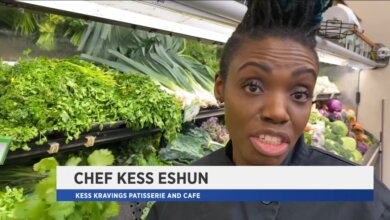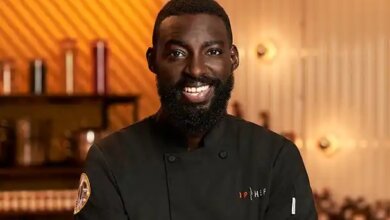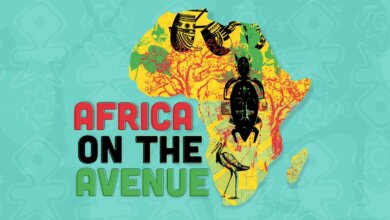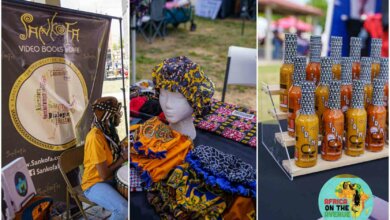WCRM Radio station Ohio helps connect African immigrants to their roots
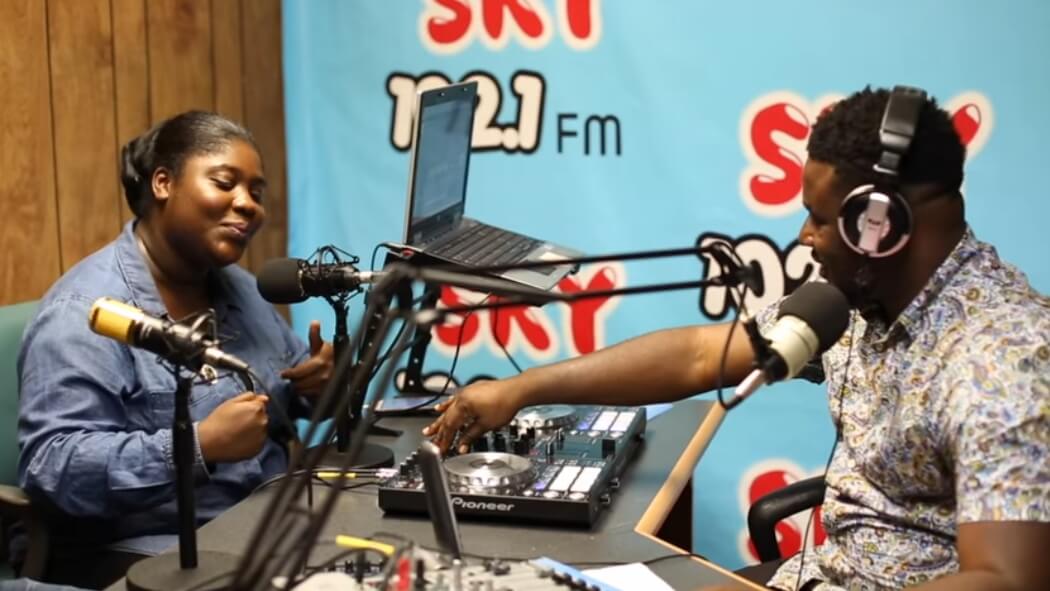

Sometimes, when Harrison Poku-Yeboah hosts his weekly show for WCRM (102.1 FM), he puts on a little bit of a West African accent. That’s because Poku-Yeboah knows his audience — the African immigrant community in Columbus.
“We’re just trying to talk to the community,” said Poku-Yeboah, who is of West African heritage but was born in Italy and came to the United States in 2000. “We want to give information to our people. We do care about our people.”
On a recent evening, Poku-Yeboah interviewed Columbus immigration attorney Inna Simakovsky for his weekly “Community Corner” show that airs on WCRM at 5:30 p.m. every Thursday. The two discussed Simakovsky’s background and some tips for finding a trustworthy immigration attorney.
Joining them in the studio, though behind the scenes, was Ernest Opuni, director of operations at the station, which launched about a year ago on the Northeast Side of Columbus. The station broadcasts 24/7 and features African music and shows in Swahili as well as in languages spoken in Ethiopia and Ghana. One of the shows comes straight from Ghana, broadcast by an affiliate there.
Central Ohio has one of the largest immigrant communities in the country, with the second-largest population of Somali natives at around 40,000, Opuni said. There also are many Ethiopian and West African natives.
Opuni, who is director of a Northeast Side nonprofit, said he saw a need for a radio station and a news source for the African immigrant community locally.
The charitable group, Pri-Value Foundation, provides social services for families, such as offering free car seats and backpacks stocked with school supplies to families who can’t afford them, and the station is an outgrowth of that, he said.
Through his work with the Mid-Ohio Regional Planning Commission, Opuni began to notice that immigrant communities were often not able to access information about the community due to language barriers and lack of knowledge about community resources.
“I realized the gap in information,” said Opuni, who immigrated to the United States from Ghana 15 years ago. “A lot was not passed on to our community. … We know we have a gap with translation, most especially with the language barrier.”
Jim Witte, director of the Institute for Immigration Research at George Mason University in Virginia, has done a survey of immigrant radio listeners through IMPRINT, a national group of nonprofit organizations that work to help immigrants get professional jobs in the U.S. that are similar to the jobs they held in their native countries. He said stations such as WCRM can be helpful to immigrants, as they can connect them to their culture and help them maintain relationships with a faraway place, culture and people in their everyday lives.
Click for other Afrocentric stories from Columbus, Ohio
“It’s a way to circulate highly relevant news to this particular group and do it in a trustworthy way,” Witte said. “There’s a long history of these sources of communication for immigrants in America.”
However, Witte warned that immigrants who rely on radio stations to connect them to their homelands can sometimes limit themselves from learning more about the American culture.
Opuni said WCRM tries to prevent that from happening by helping people learn about local culture and news, as well as stay connected to their native culture.
“You can’t really translate culture,” he said. “We felt the need to have something people can relate with.”
On the “Community Corner” show, Poku-Yeboah brings on city and county officials as guests to tell listeners what’s going on in local government.
The station, which is completely run by volunteers, also offers programming such as “Black Excellence,” gospel and East African top-20 countdowns, and a drive-time show from 4 to 7 p.m., Opuni said. It also broadcasts a show from a Ghanaian station, has music and is working on more programming.
It’s nice for people to hear things that are happening back home with their family members who are still in Africa, Opuni said.
“When my mom gets in the car, she feels like being at home,” Opuni said. “We get good feedback. We have a social responsibility.”
Source:
Oral Ofori is Founder and Publisher at www.TheAfricanDream.net, a digital storyteller and producer, and also an information and research consultant.

